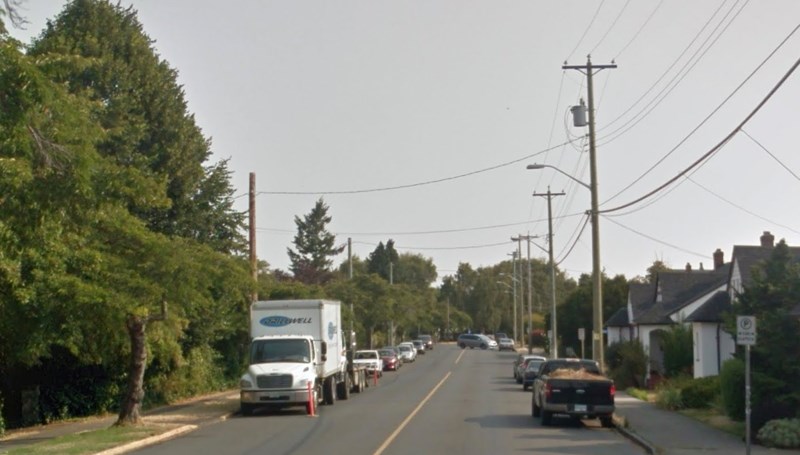A 2.5-storey townhouse project in the Gonzales neighbourhood will go ahead as planned.
The B.C. Supreme Court has dismissed a petition that sought to overturn Victoria council’s approval of the 20-unit Rhodo development by the Aryze & Purdey Group at 1712 and 1720 Fairfield Rd.
Victoria resident John Wells argued that council contravened the city’s official community plan by approving a development in excess of the two-storey limit for buildings in that area.
The court, however, sided with the city in concluding the project was properly considered and approved.
The court found that the reference to two storeys in the community plan was a “guideline” rather than a hard and fast limit, and that council reasonably balanced that with other policy objectives in the plan such as the need for a diversity of housing types.
“The court concluded that council can enact a rezoning bylaw that advances [official community plan] objectives, even if it does not strictly comply with all OCP guidelines,” Bill Eisenhauer, the city’s head of engagement, said in a statement.
“This rezoning bylaw satisfied many objectives of the OCP such as the provision of more housing, increasing the variety of housing forms and providing ground-oriented housing along transit corridors and close to urban villages, for example.”
Wells raised more than $10,000 through the crowdsourcing site gofundme.com to help pay for the legal challenge.
After the court decision, he posted a note on the fundraising page thanking his supporters.
“This was truly a community effort,” he wrote. “Despite the outcome, the additional clarity from the court about the function and force of the OCP is important and was worth the effort.”
Wells said in an interview Monday that the case showed that council has a lot of discretion when it comes to interpreting the official community plan.
“So, in that respect, if residents are not happy with the way things are going, then really it’s about deciding this at an election,” he said.
“If we’re not happy with the way city council is interpreting the OCP, we need a different city council.”
Luke Mari, director of development with Purdey Group, said he doesn’t view the court decision as a victory.
"That’s the opposite of what we feel,” he said. “No one won. This court case delayed our project, added costs to it.”
Mari said the developers will be applying for building permits in December and likely begin construction in late spring or early summer.
“I firmly believe that Mr. Wells and the people supporting him, overall, in a general sense, probably want the same things as we do,” he said. “We want vibrant, healthy sustainable communities. It’s just how we get there, I think, is where we’re finding friction.
“My personal opinion is that the courts aren’t the way to settle that,” he added, noting that the Rhodo development went through nearly three years of consultations before receiving final approval.
Mari said homeowners or renters have an opportunity to have their interests represented in that process. “Who isn’t represented is the future residents, and by denying this project, it doesn’t mean the taps just shut on population growth,” he said.
“So we have to always take the long view that 10, 15, 20, 30 years from now, was this good land-use planning? Was this an added value to the neighbourhood?
“So with that we move forward. We can’t always get 100 per cent consensus, but we believe in what we’re doing.”



